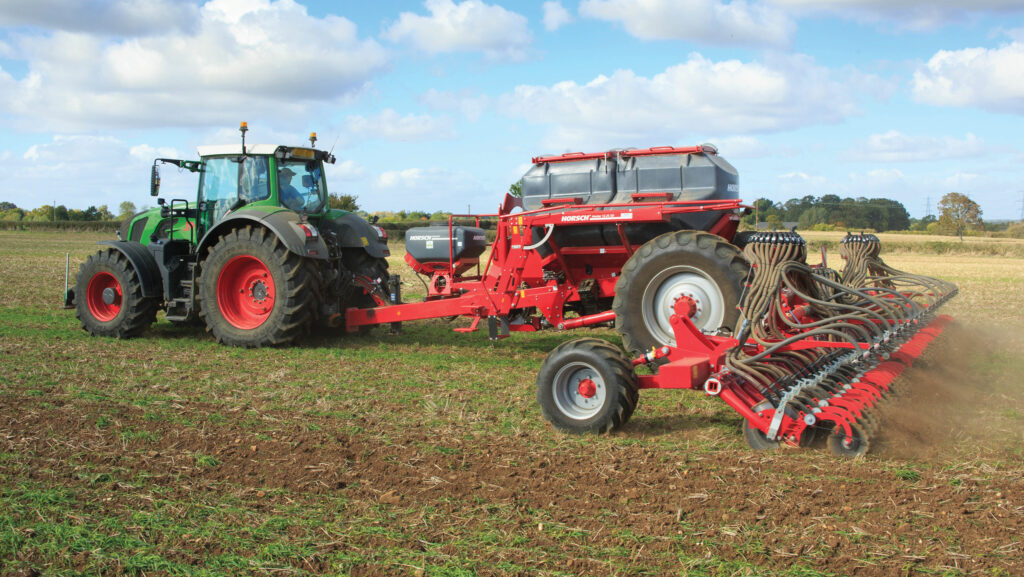Radical reset on food production needed says new report
 © Tim Scrivener
© Tim Scrivener The time has come for a radical reset in domestic agricultural policy, harnessing the full power of scientific advance with a view to improving UK food self-sufficiency, while reducing the environmental impact.
That is the takeaway message from a new report from the All Party Parliamentary Group on Science and Technology in Agriculture (APPGSTA), presented in Westminster today as part of its 30:50:50 strategy – to produce 30% more food with 50% less environmental impact by 2050.
See also: Sustainability index needed to aid ‘more from less’ agenda
“Without radical policy reform, the UK risks further erosion of its food self-sufficiency and growing reliance on imports at a time when geopolitical instability and climate extremes also threaten global food supply chains,” says the report.
It notes that, over the past 25 years, the UK has lost 771,000ha of farmland – a 4.4% decline – contributing to a 12% fall in food self-sufficiency.
The analysis also points to declining yields and food production over the past 10-15 years, attributed to extreme weather, rising input costs, loss of key crop protection products, tighter restrictions on input use, and a greater focus on production-limiting farm policy incentives.
It warns that further production losses are in the pipeline, thanks to government land use policies related to housing, biodiversity and net zero, which could see up to 23% of farmland lost to non-food uses by 2050, with an attendant 32% drop in agricultural output.
Productivity stalls
“Despite favourable growing conditions, world-class agri-science, and a highly professional farming sector, UK agricultural productivity growth has stalled,” APPGSTA chairman George Freeman will tell today’s Westminster gathering.
“Fragmented support policies, inconsistent regulation and a failure to translate scientific advances into practice have constrained progress.
“Defra’s own research indicates that current farm policies will reduce or displace domestic food production.
“The challenges of population growth, climate change, war and global instability demand a joined-up, cross-government response — not a siloed one.’’
Land use priorities
Mr Freeman will also speak of various “missed opportunities” and the need for a “priority reset”.
In particular, the Land Use Framework published by Defra in January 2025 had only set out broad brush objectives.
Mr Freeman believes a much more prescriptive “land sparing” approach is needed, to ringfence the best farmland for high-yielding food production, while environmental schemes such as tree planting and rewilding should be reserved for the least productive land.
He is also keen to see the government set a statutory 75% self-sufficiency target, and to really harness scientific advance – particularly in the field of gene editing of plants and livestock – to increase overall productivity, while reducing the environmental footprint.
Forging closer regulatory alignment with the EU might improve trade, but it could restrict agricultural innovation, he believes.
Solar energy
Writing in the introduction to the report – Feeding Britain sustainably to 2050 – Mr Freeman is also scathing about the government’s solar strategy, approving large-scale installations on good quality farmland.
“While renewable energy is key, this approach risks undermining our capacity to grow food at home. A more balanced strategy would see solar generation prioritised on new buildings and non-agricultural land, while increasing agricultural output and resilience,” he says.
The report also focuses on the direction of agricultural research, noting that under the 2013 Agri-tech Strategy “much of the investment ultimately went into academic research, with limited connection to boosting industrial productivity”.
The time has come for a “root and branch review” with a focus on “producing more from less”, it says.
Key recommendations from the APPGSTA
- Establish a statutory target for 75% domestic food self-sufficiency by 2050 (compared with 60% now)
- Adopt a more “outcomes-based” approach to farm support policies, while protecting our most productive farmland
- Conduct an urgent review of the research landscape for crop science in the UK
- Drive farm-level adoption of productivity-enhancing technologies through better tax policy and grant schemes
- Prioritise genetic innovation in crops and livestock to drive productivity and sustainability
- Develop a new National Farm Data Initiative to benchmark and monitor progress
- Ensure any UK-EU realignment maintains the UK’s regulatory autonomy in agricultural innovation
Stakeholder insights
The APPGSTA captured the views of more than 100 stakeholders and organisations in drawing up its report (including Farmers Weekly), who showed strong support for the 30:50:50 concept.
The general view was that the objectives were achievable, but current land use policy was often more of a deterrent than a stimulus, promoting environmental goals at the expense of food production.
The regulatory environment was at times over-cautious, while the research sector had a poor record of moving scientific discovery from the lab to the field.
